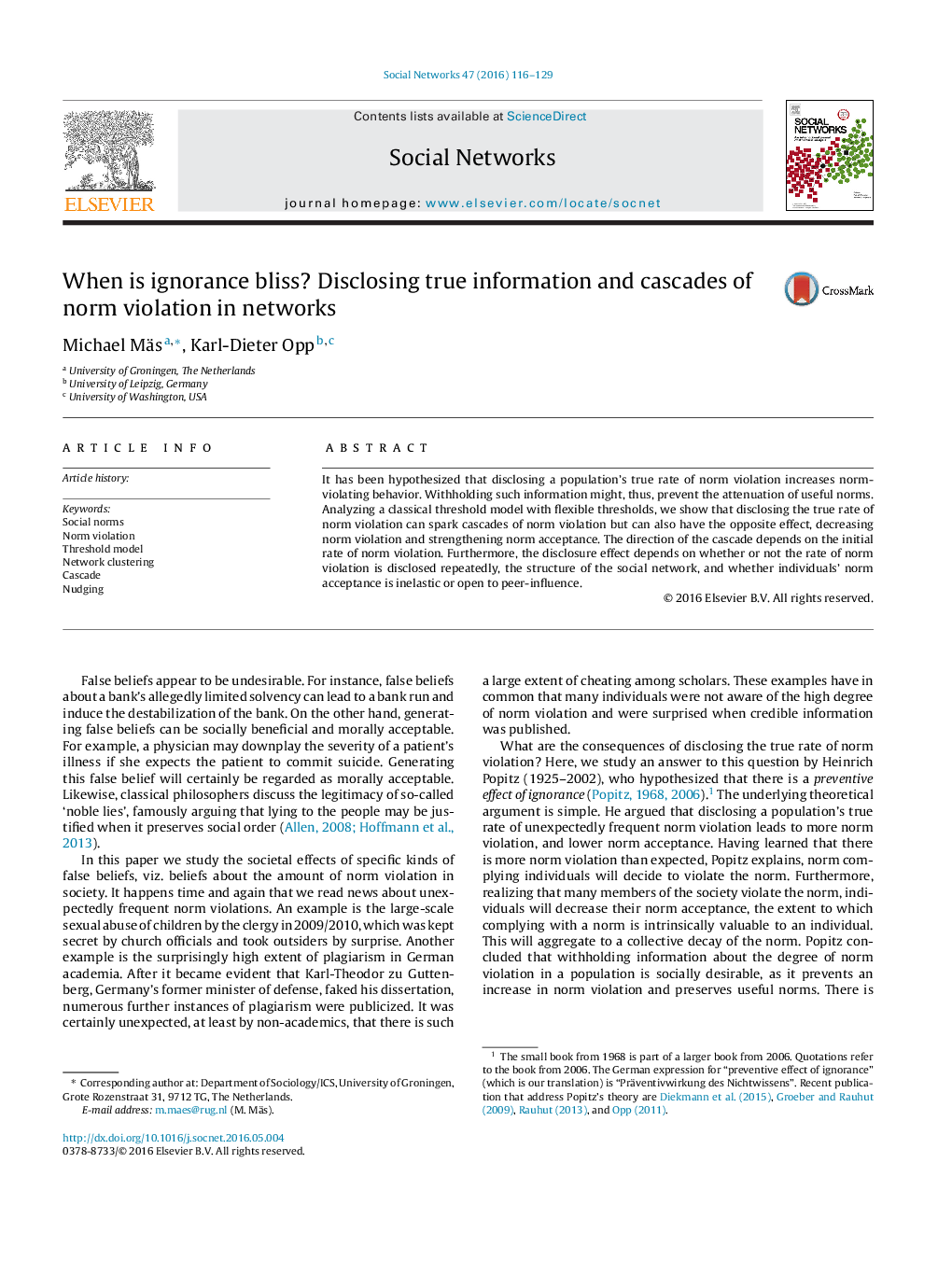| Article ID | Journal | Published Year | Pages | File Type |
|---|---|---|---|---|
| 7538434 | Social Networks | 2016 | 14 Pages |
Abstract
It has been hypothesized that disclosing a population's true rate of norm violation increases norm-violating behavior. Withholding such information might, thus, prevent the attenuation of useful norms. Analyzing a classical threshold model with flexible thresholds, we show that disclosing the true rate of norm violation can spark cascades of norm violation but can also have the opposite effect, decreasing norm violation and strengthening norm acceptance. The direction of the cascade depends on the initial rate of norm violation. Furthermore, the disclosure effect depends on whether or not the rate of norm violation is disclosed repeatedly, the structure of the social network, and whether individuals' norm acceptance is inelastic or open to peer-influence.
Related Topics
Physical Sciences and Engineering
Mathematics
Statistics and Probability
Authors
Michael Mäs, Karl-Dieter Opp,
